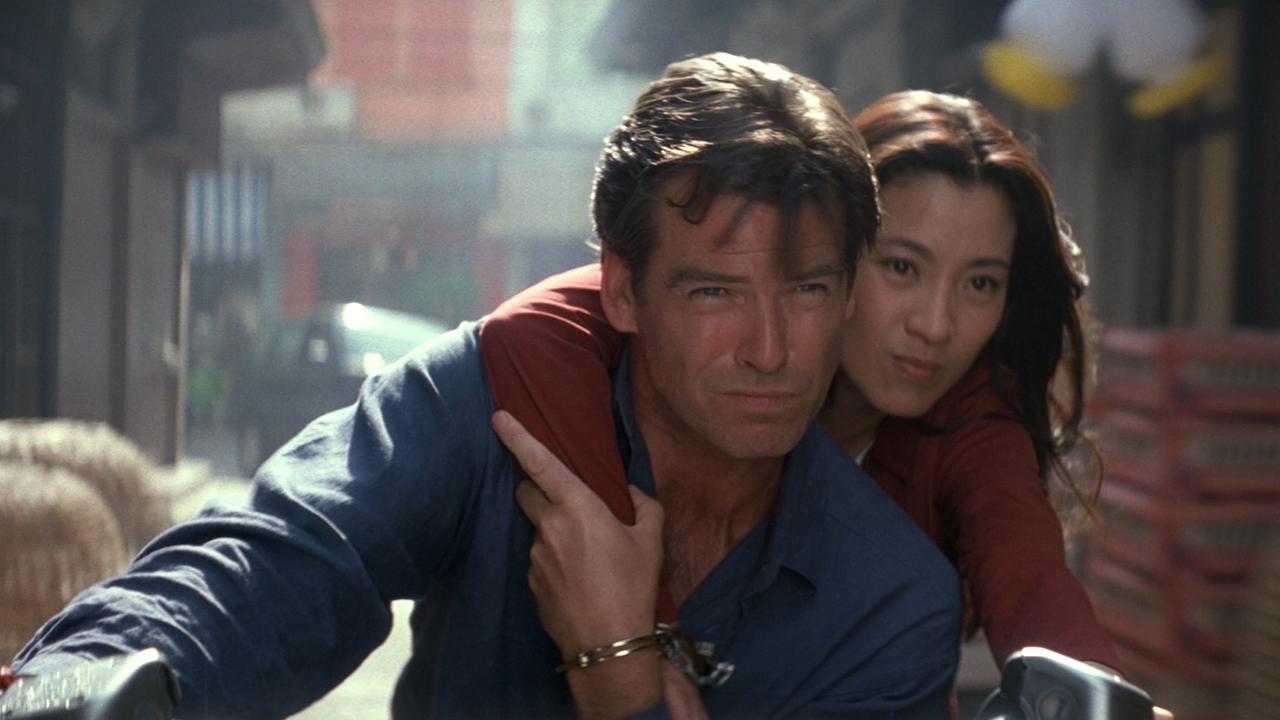Q: On what movie viewing experience are you reporting?
A: The experience on the night of January 14th, 2018.
Q: What was the movie viewed?
A: The 18th James Bond movie, Tomorrow Never Dies (1997).
Q: Why?
A: Death felt about 2 hours too far away.
Q: Why this film?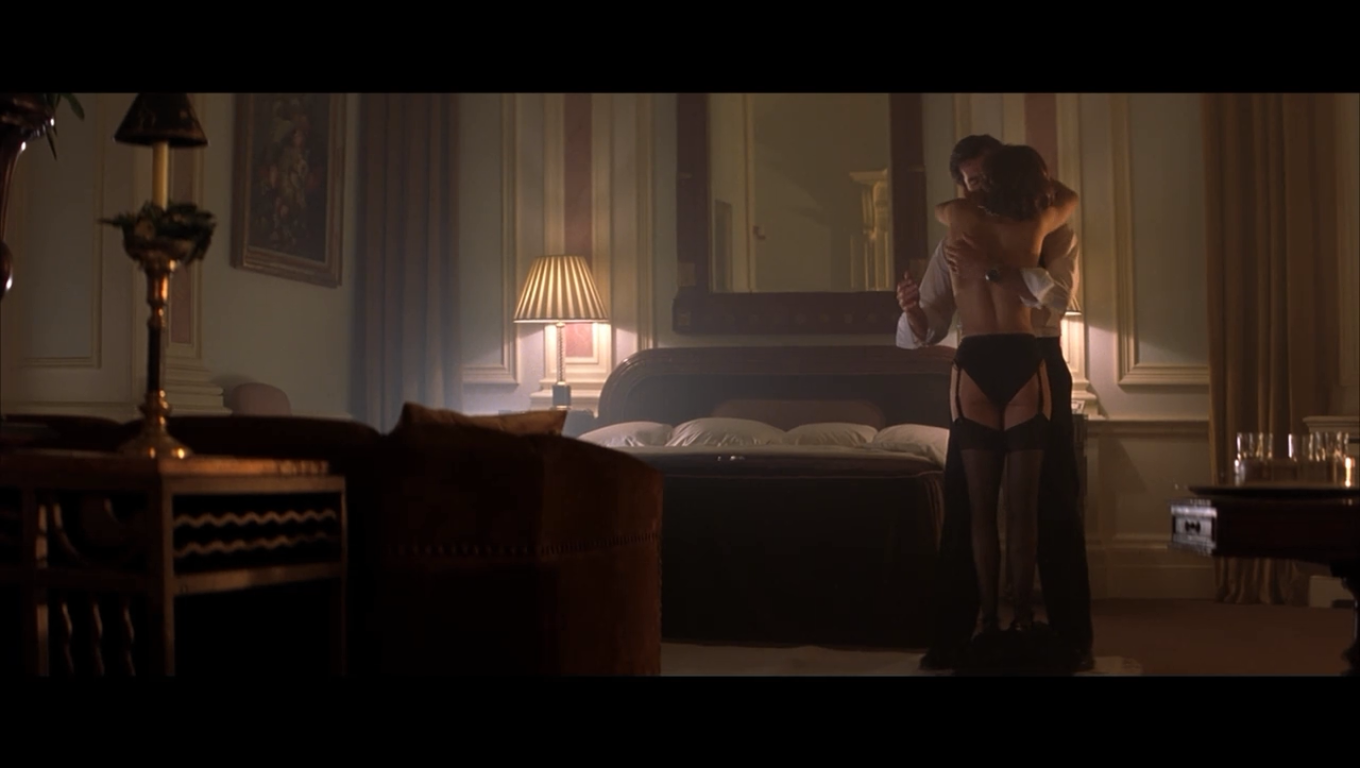
A: A lingering fascination with the James Bond franchise, I suppose; a general appreciation of it as a bellwether of something or other.
Q: What is the plot of the film?
A: James Bond (Pierce Brosnan) is called away from a morning of casual sex—
Q: Nature of sex act?
A: Judging by the quips, some form of -lingus, whether cunni- or ani-.
Q: Continue.
A: James Bond is called away from a morning of casual sex to stop a villain-
Q: Nature of villain?
A: Evil media mogul; clearly based on Rupert Murdoch.
Q: Nature of plan?
A: To cause massive wars so that he can cover it.
Q: Nature of henchmen?
A: European in a vaguely German way.
Q: Continue.
A: James Bond is called away from a morning of casual sex to stop a villain from causing a nuclear war. In the process, he manages to kill one girlfriend—a former fling, who is now married to the villain—and acquire another, Hong Kong action star Michelle Yeoh.
Q: Nature of Yeoh’s presence?
A: Amused by her own presence in the film.
Q: Nature of Yeoh and Brosnan’s relationship?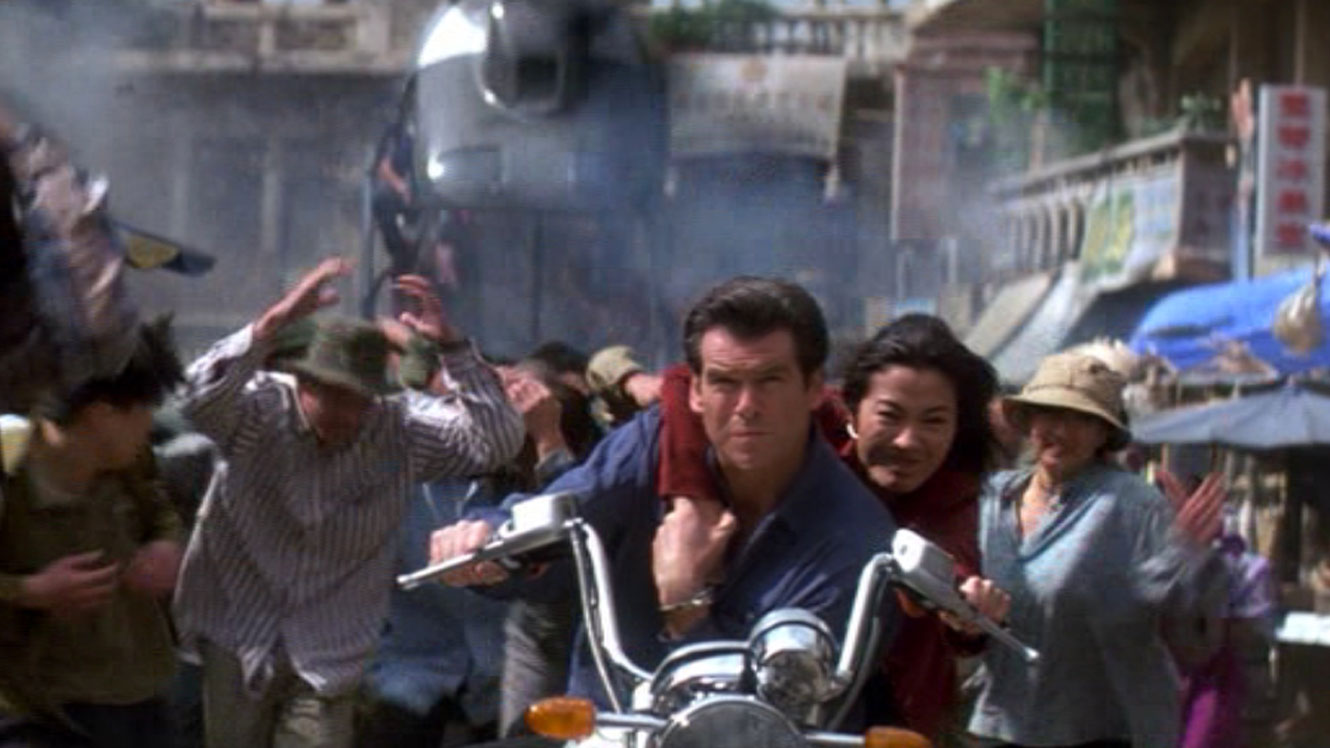
A: Textually sexual, but subtextually paternal. Bond seems far more interested in protecting her than sleeping with her, and they manage to make being handcuffed to each other wholly un-sexy. In the field of un-sexiness, it is a towering achievement.
Q: Nature of Brosnan’s reference to Yeoh?
A: Consistently, he refers to her as “the girl,” as in “Let the girl go, it’s me you want.”
Q: Age difference between Yeoh and Brosnan?
A: Brosnan was 44 and Yeoh was 35, making her nine years his junior.
Q: Why, then, is Brosnan’s relationship with her so curiously paternal?
A: I was getting to that. It seems to be relevant to point out here that the movie makes several references to Bond’s fingers and tongue in a sexual manner, but no references to his penis.
Q: Nature of references?
A: A partial summary: the aforementioned sex scene, in which Brosnan quips about mastering a foreign tongue; his conversation with Moneypenny in the same scene, in which she calls him a “cunning linguist”; his later conversation with Q, in which he claims a trackpad (which has a female voice) will “respond to his touch better,” followed by him dragging his finger across it in what seems to me to be a sexually suggestive manner.
Q: Continue.
A: And yet, despite the focus on non-phallic forms of sex, the film is filled with phallic and yonic imagery.
Q (whispered): Yonic?
A (whispered): A somewhat outdated term for “vagina-like”; “vulvic” is slightly more popular these days.
Q: Continue.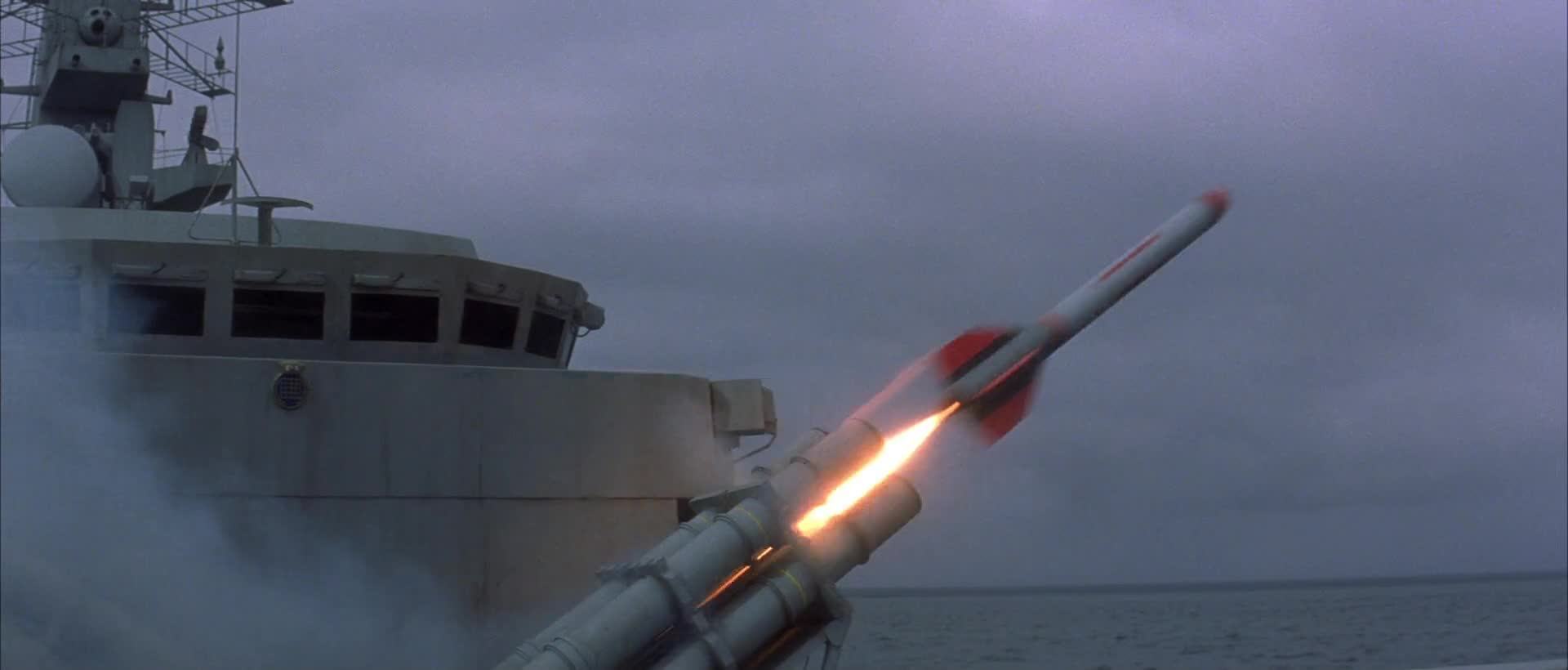
A: When it comes to weapons, Bond is armed with an infinite variety of phalluses in the form of missiles. He fires many missiles in the opening scene, which is centered around him stealing missiles from the enemy, and in almost every other major firefight he manages to find missiles of some variety lying around.
Q: Nature of missile imagery?
A: The classic 1990s image of missiles: sharp red tips just pointing out of a large square launcher.
Q: Nature of yonic imagery?
A: The villains have a peculiar weapon on which a great deal of time is spent: a missile-drill, which with 3 large rotating blades pointing towards a center void reminds one (or at least this one) immediately and strongly of a vagina, particularly in the form of the “vagina dentata”.
Q: Relevance of this diversion?
A: It seems as if the focus on missiles and vagina-drills replaces Bond’s actual sex, and his sex is repurposed as a form of service to women. His sex becomes a gift focused around her needs — a very progressive movement from Sean Connery, one supposes.
Q: In short, what does one wonder?
A: One wonders if the replacement of Bond’s single phallus for a number of sexual objects — tongue, fingers — creates a new singularity within the woman, a need for a man’s fulfillment. This is thus perhaps a variety of the women constantly being put in peril: just as in sex they are placed in the position of the absolute receiver of pleasure, in peril they are placed in the position of the absolute receiver of rescue. Brosnan’s peculiarly paternal role in relationship with his lovers comes from this: he is the one who can give the gift of pleasure and salvation from pain, through a multitude of skills and techniques. The singularity of his phallus is replaced by the singularity of her need.
Q: What else does one wonder?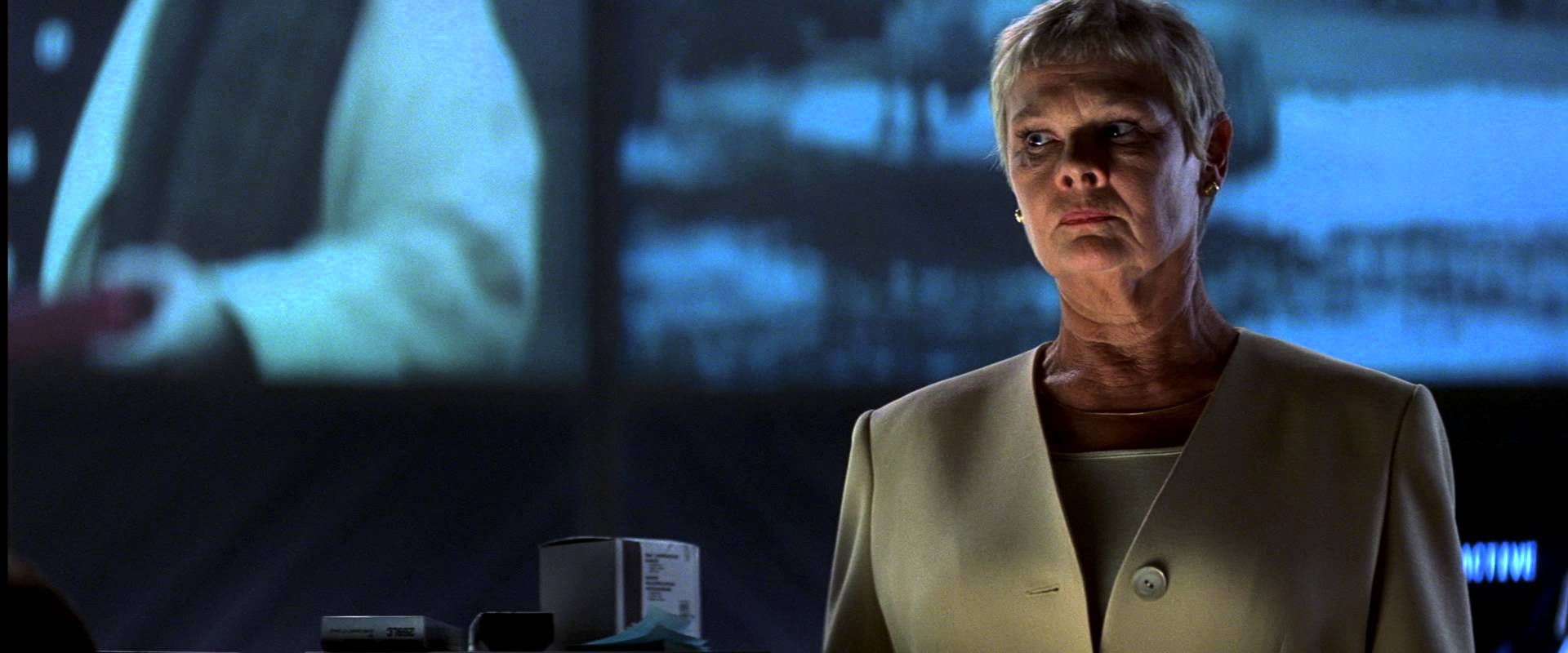
A: One wonders if this is not a transformation of a larger problem, the loss of the USSR, which could serve as a clear enemy. In the place of the enemy who must be destroyed (and, of course, SPECTRE was always a thin layer of camouflage placed over the books’ explicitly Russian SMERSH), there is the public who must be protected. It is this protection which is the most important thing, even if it requires lying — note the contrast between the villain, who actually does report the news, even if he causes it himself, and the final moments of the film, in which M writes a fake news story of the villain’s suicide for public consumption.
Q: What, finally, does one wonder?
A: One wonders if the Brosnan Bonds do not, in their awkwardness, represent the crisis of a culture that has lost an enemy and is trying to establish a new way of thinking of itself as morally superior, as a superior paternalistic figure—but now a figure who is explicitly equal to everyone else, while implicitly believing itself to be superior. One wonders if, in short, these films do not merit further study as being highly revealing of the Western power fantasy into which we may fall back at any moment.
Q: This is, of course, all bullshit.
A: Mostly.

